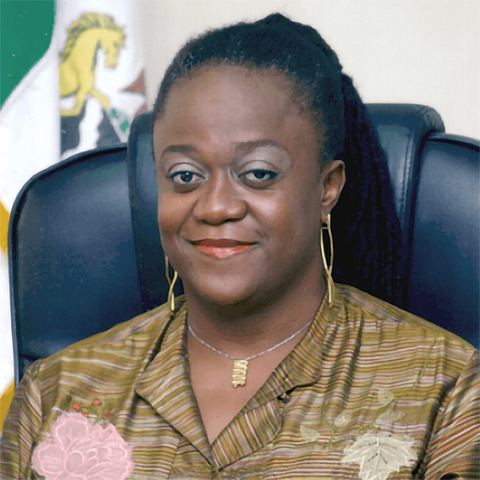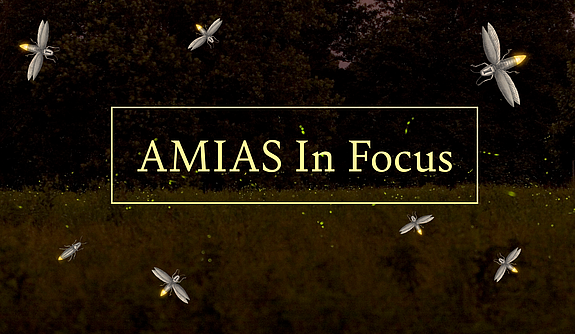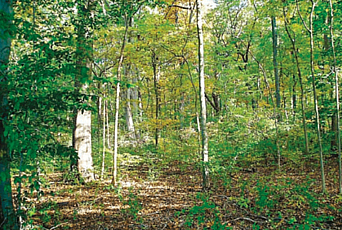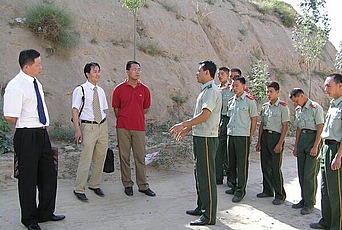
Leslye Obiora, Visitor (1998) in the School of Social Science, came to the Institute to work on a project examining the UN-determined international human rights agenda and how well it has travelled across cultures and structures (both how it has been adopted by various cultures, as well as how it is developed with new cultures in mind), specifically in relation to gender equality. Following her time at IAS, she gained further experience in public service; she has served as the Minister of Mines and Steel Development for the Federal Republic of Nigeria, as Manager of the World Bank Gender and Law Program, and has held several teaching positions. She has also been a Trustee of various Boards, including the Association of Members of the Institute for Advanced Study (AMIAS).
Thinking back to your time at the IAS, where were you in your career at that point?
For me, coming to the IAS was a great turning point. I have eleven years of post-graduate studies, but all of them are in law. So, while I’d always wanted to do social sciences and interdisciplinary work, none of my training was in that. When I think of my time at IAS, I think very fondly within the framework of the metaphor of a child learning to walk: you take your baby steps amidst the watchful eyes of your parents, you stumble, you get up, and they keep encouraging you.
Did you have fruitful encounters with other Members and Faculty while at the IAS, and did these encounters impact your work?
I came here looking for a place to deepen or advance my studies, and I [found] a village in every sense of the word—a village where you had every demographic cohort, from one-year-olds to octogenarians, who all interacted in a way that was very mutually enriching, very respectful, and very encouraging. You hear of the famed Faculty—Clifford Geertz, Michael Walzer, Albert Hirschman, and Joan Scott—but you don’t realize how approachable and how really devoted they are in mentoring and nurturing you, and in investing in your career. What I did there would have been infinitely different had I not sat at the feet of these great people and my fellow scholars to reflect much more deeply on the implications of what I was arguing about. You would have people fiercely disagreeing with you, but it was in the spirit of camaraderie; it was always—always—invariably enriching.
What did your time as an IAS scholar enable you to accomplish?
I went from the Institute back to my home institution at the time, which was the University of Arizona. Within a year of returning there, I got an offer to go to the World Bank to manage their standalone Gender and Law program. So, I got to take my scholarship to a policy arena. I had thirteen countries in my portfolio, all of them in Africa, and would reach out to policy makers there to figure out how they could use their law reform program to improve the status, well-being, and agency of women in those countries. I came from IAS and then my eyes were opened to the real world at the World Bank, and my life has never been the same because, after that, I felt a burning sense of obligation to really roll up my sleeves and devote my intellectual capital to help improve on policy outcomes. I can say, without a shadow of doubt, that after more than two decades, becoming a member of IAS is a gift that has just given perpetually in my life.
What was the most important aspect of your stay?
I guess the ambiance. It may have been something in the air or in the water, or it may have been the social events that they integrated into what we were doing, but it was the most relaxed sanctuary that I have found, anywhere. The whole campus is beautiful, including the woods. This was my first encounter with wildlife, up-close and personal; the deer would just be impervious to your presence and walk straight up to you. And the very first time I saw a cloud of fireflies (which were actually my favorite), I couldn’t quite figure out what they were and had to go investigate. When it turned out to be these fireflies, it was almost like the heavens had come down. It was so picturesque, and each of these little, very unique things added to the beauty—if not the magic—of the place.



